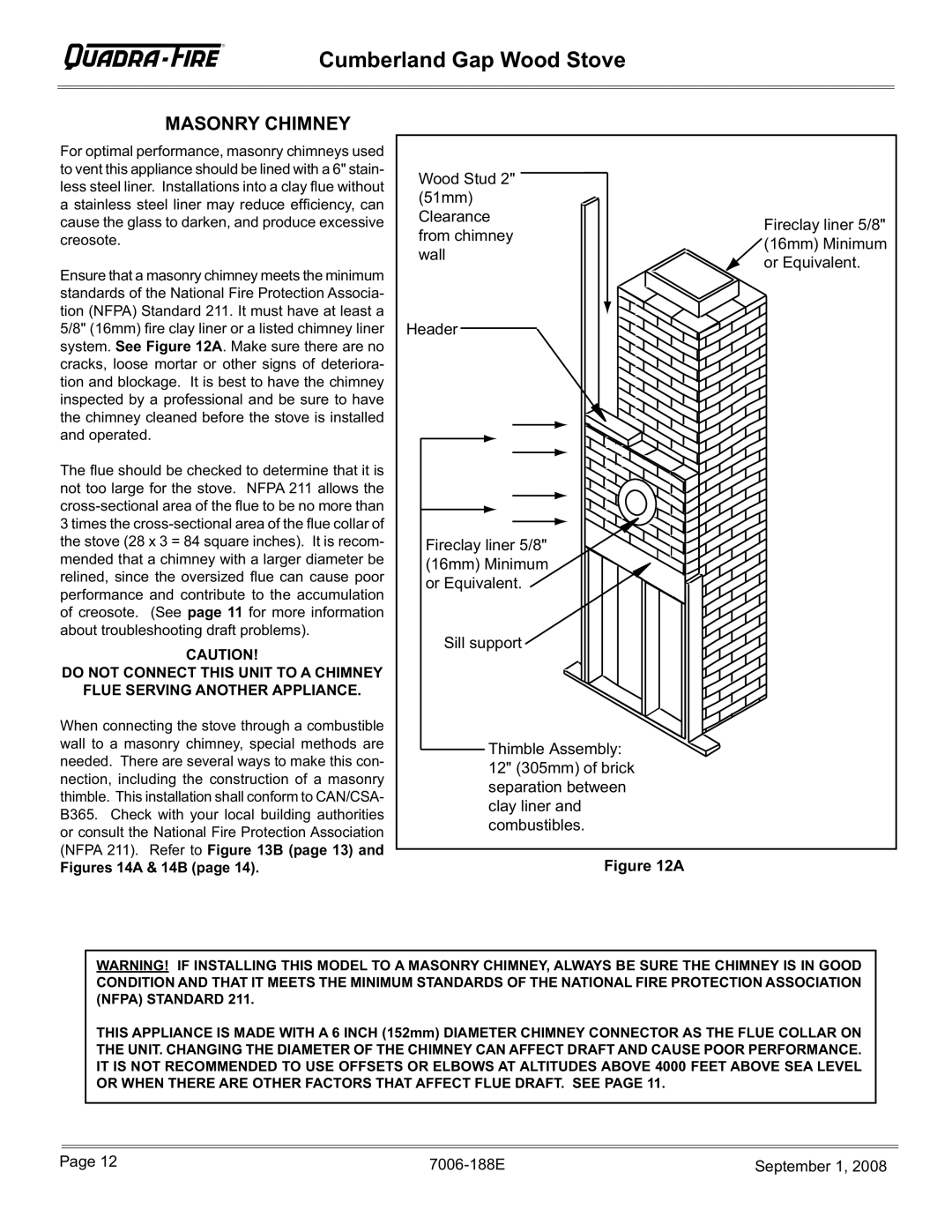
R
Cumberland Gap Wood Stove
MASONRY CHIMNEY
For optimal performance, masonry chimneys used to vent this appliance should be lined with a 6" stain- less steel liner. Installations into a clay flue without a stainless steel liner may reduce efficiency, can cause the glass to darken, and produce excessive creosote.
Ensure that a masonry chimney meets the minimum standards of the National Fire Protection Associa- tion (NFPA) Standard 211. It must have at least a 5/8" (16mm) fire clay liner or a listed chimney liner system. See Figure 12A. Make sure there are no cracks, loose mortar or other signs of deteriora- tion and blockage. It is best to have the chimney inspected by a professional and be sure to have the chimney cleaned before the stove is installed and operated.
The flue should be checked to determine that it is not too large for the stove. NFPA 211 allows the
CAUTION!
DO NOT CONNECT THIS UNIT TO A CHIMNEY
FLUE SERVING ANOTHER APPLIANCE.
When connecting the stove through a combustible wall to a masonry chimney, special methods are needed. There are several ways to make this con- nection, including the construction of a masonry thimble. This installation shall conform to CAN/CSA- B365. Check with your local building authorities or consult the National Fire Protection Association (NFPA 211). Refer to Figure 13B (page 13) and
Wood Stud 2" ![]() (51mm)
(51mm)![]() Clearance
Clearance
from chimney wall
Header
Fireclay liner 5/8" (16mm) Minimum or Equivalent.
Sill support
Thimble Assembly: 12" (305mm) of brick separation between clay liner and combustibles.
Fireclay liner 5/8" (16mm) Minimum or Equivalent.
Figures 14A & 14B (page 14).
Figure 12A
WARNING! IF INSTALLING THIS MODEL TO A MASONRY CHIMNEY, ALWAYS BE SURE THE CHIMNEY IS IN GOOD CONDITION AND THAT IT MEETS THE MINIMUM STANDARDS OF THE NATIONAL FIRE PROTECTION ASSOCIATION (NFPA) STANDARD 211.
THIS APPLIANCE IS MADE WITH A 6 INCH (152mm) DIAMETER CHIMNEY CONNECTOR AS THE FLUE COLLAR ON THE UNIT. CHANGING THE DIAMETER OF THE CHIMNEY CAN AFFECT DRAFT AND CAUSE POOR PERFORMANCE. IT IS NOT RECOMMENDED TO USE OFFSETS OR ELBOWS AT ALTITUDES ABOVE 4000 FEET ABOVE SEA LEVEL OR WHEN THERE ARE OTHER FACTORS THAT AFFECT FLUE DRAFT. SEE PAGE 11.
Page 12 | September 1, 2008 |
